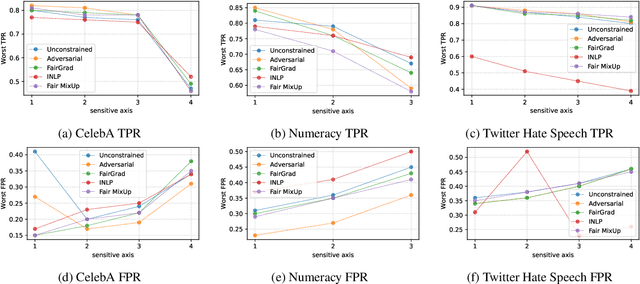How to Capture Intersectional Fairness
Paper and Code
May 21, 2023



In this work, we tackle the problem of intersectional group fairness in the classification setting, where the objective is to learn discrimination-free models in the presence of several intersecting sensitive groups. First, we illustrate various shortcomings of existing fairness measures commonly used to capture intersectional fairness. Then, we propose a new framework called the $\alpha$ Intersectional Fairness framework, which combines the absolute and the relative performances between sensitive groups. Finally, we provide various analyses of our proposed framework, including the min-max and efficiency analysis. Our experiments using the proposed framework show that several in-processing fairness approaches show no improvement over a simple unconstrained approach. Moreover, we show that these approaches minimize existing fairness measures by degrading the performance of the best of the group instead of improving the worst.
 Add to Chrome
Add to Chrome Add to Firefox
Add to Firefox Add to Edge
Add to Edge